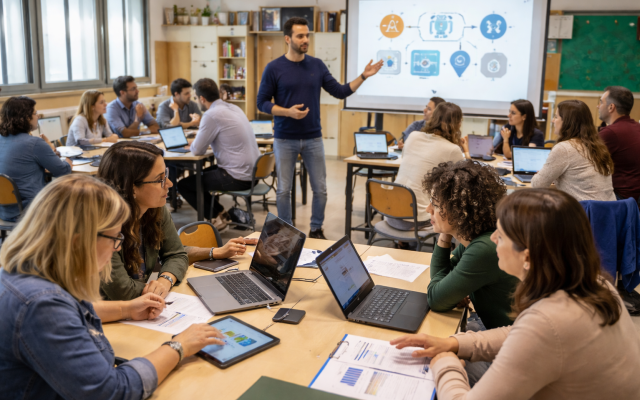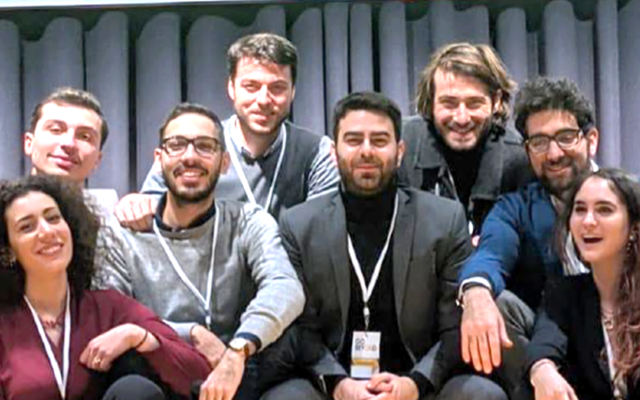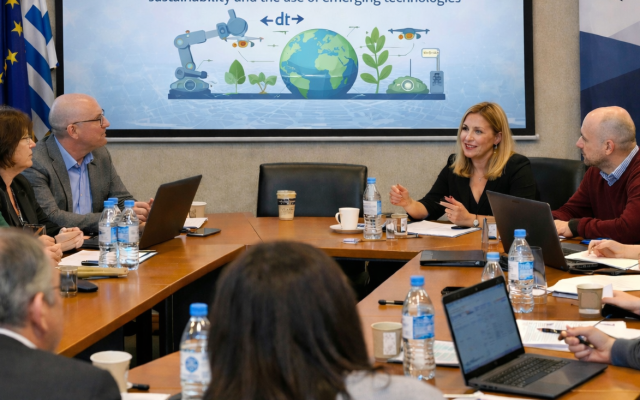3 min.
Eleven European countries, national partners in Project E-UROPa “Enabling European e-Participation, have organized a European e-Participation Day 2015 for today, May 7. The aim is to motivate citizens to use e-participation tools via workshops and labs.
Here is the address of Alfonso Molina, Professor of Technology Strategy, University of Edinburgh and Scientific Director, Fondazione Mondo Digitale, at the European Digital Participation Day promoted in Italy by the FMD at the Rome Città Educativa.
E-PARTICIPATION DAY
May 7, 2015 – Rome Città Educativa
Good Morning to all of you,
Today, May 7, we celebrate European e-Participation Day 2015. This initiative organized by Project E-UROPa – Enabling European e-Participation – is very important not only for the future of democracy in Italy and in Europe, but also for our development as citizens and human beings.
The Fondazione Mondo Digitale – whose mission is the development of a democratic knowledge society where everyone can benefit from development – is proud to participate in this project that aims to stimulate the conscience of European on the participation opportunities that exist in Europe thanks to digital technology.
Although we are only at the beginning, this is a crucial development for the future of Europe. Today, in fact, Italian and European politics and institution are suffering a marked crisis in credibility, which is accentuated by the dramatic impact of the economic and structural crisis that affects the lives of millions of citizens and especially young men and women who do not understand the meaning of these institutions for their future.
There has been a general decline in the trust of citizens in the European Union. The Commission’s Eurobarometer reveals that in 2004 trust amongst citizens in the Union totalled 50%, while by autumn 2013 this figure was down to 31%. Similar trends also apply to national governments and parliaments.
Even worse, the Eurobarometer survey indicates that Europeans even believe their voice does not count in the EU. In 2004, 52% of interviewees believed they had no say in Europe. This figure increased to 66% by 2013. In Italy, it reached 79%.
So, there is a lot of work to be done. I would like to point out two aspects of the work done by the FMD that are fundamental to make e-participation effective and inclusive. The first is the intergenerational solidarity that the FMD has been promoting for many years, because without technological access and know-how, e-participation is useless. Only the widespread understanding of digital tools guarantees access to the tools necessary for e-participation.
The second fundamental aspect implemented by FMD for effective e-Participation is education. In particular, I refer to what we call Life Education and which includes three fundamental elements: (1) the standardized and codified knowledge provided by schools and universities, (2) key competences or life skills such as creativity, critical thinking and communication and (3) fundamental values for responsible citizenship such as integrity, solidarity and appreciation for others and the environment.
Without this type of education, it’s difficult to imagine how to bring about the profound cultural change that is necessary to practice participatory democracy by citizens and governments in today’s complex world.
e-Participation provides great opportunities to both citizens and European institutions. The creation of e-Participation tools represent a step in the right direction, but much more must be done to make our dream of fully democratic participation a true reality.
Thanks!
Alfonso Molina, Professor of Technology Strategy, University of Edinburgh and Scientific Director, Fondazione Mondo Digitale



